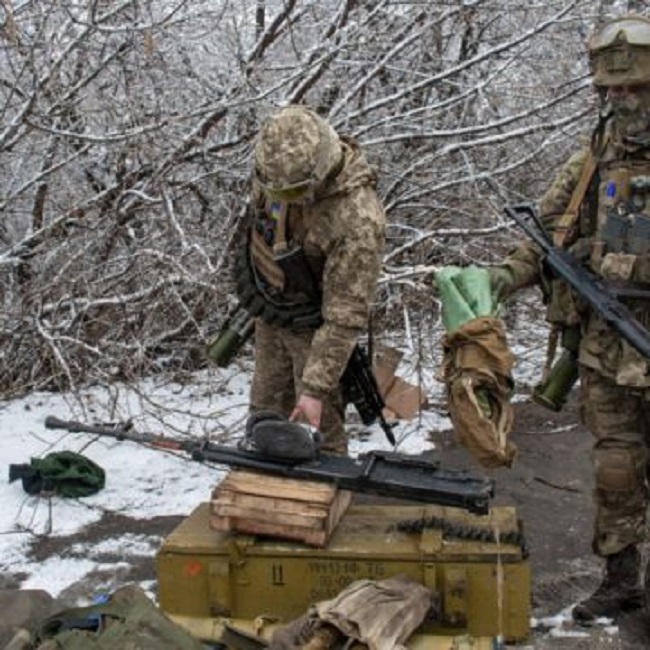
Russian troops have entered Ukraine’s second-largest city of Kharkiv and fighting is underway in the streets on Sunday morning, according to the Associated Press.
Until Sunday, Russia’s troops had remained on the outskirts of Kharkiv, a city of 1.4 million about 20 kilometres south of the border with Russia, while other forces rolled past to press the offensive deeper into Ukraine.
Videos posted on Ukrainian media and social networks showed Russian vehicles moving across Kharkiv and a light vehicle burning on the street. Residents were urged to stay inside.
The troops in Kharkiv arrived hours after Russia unleashed a wave of attacks on Ukraine targeting airfields and fuel facilities.
Earlier there were two large explosions that rocked an area south of Kyiv just before 1:00 a.m. One of the blasts was near the Zhuliany airport, Ukraine President Volodymyr Zelenskyy’s office said.
The mayor of Vasylkiv, about 25 miles south of the capital, said an oil depot there was hit, according to the Associated Press.
Elsewhere, Russian forces blew up a gas pipeline in Kharkiv. The explosion created mushroom-cloud and could cause an “environmental catastrophe,” warned the State Service of Special Communication and Information Protection.
Residents were advised to cover their windows with damp cloth or gauze and to drink plenty of fluids.
At least 240 civilian casualties are confirmed by the United Nations, including at least 64 people killed in the fighting — though it believed the “real figures are considerably higher” because many reports of casualties remain to be confirmed.
More than 150,000 people have fled the Ukraine to neighboring countries and the United Nations warned that number could grow to four million.